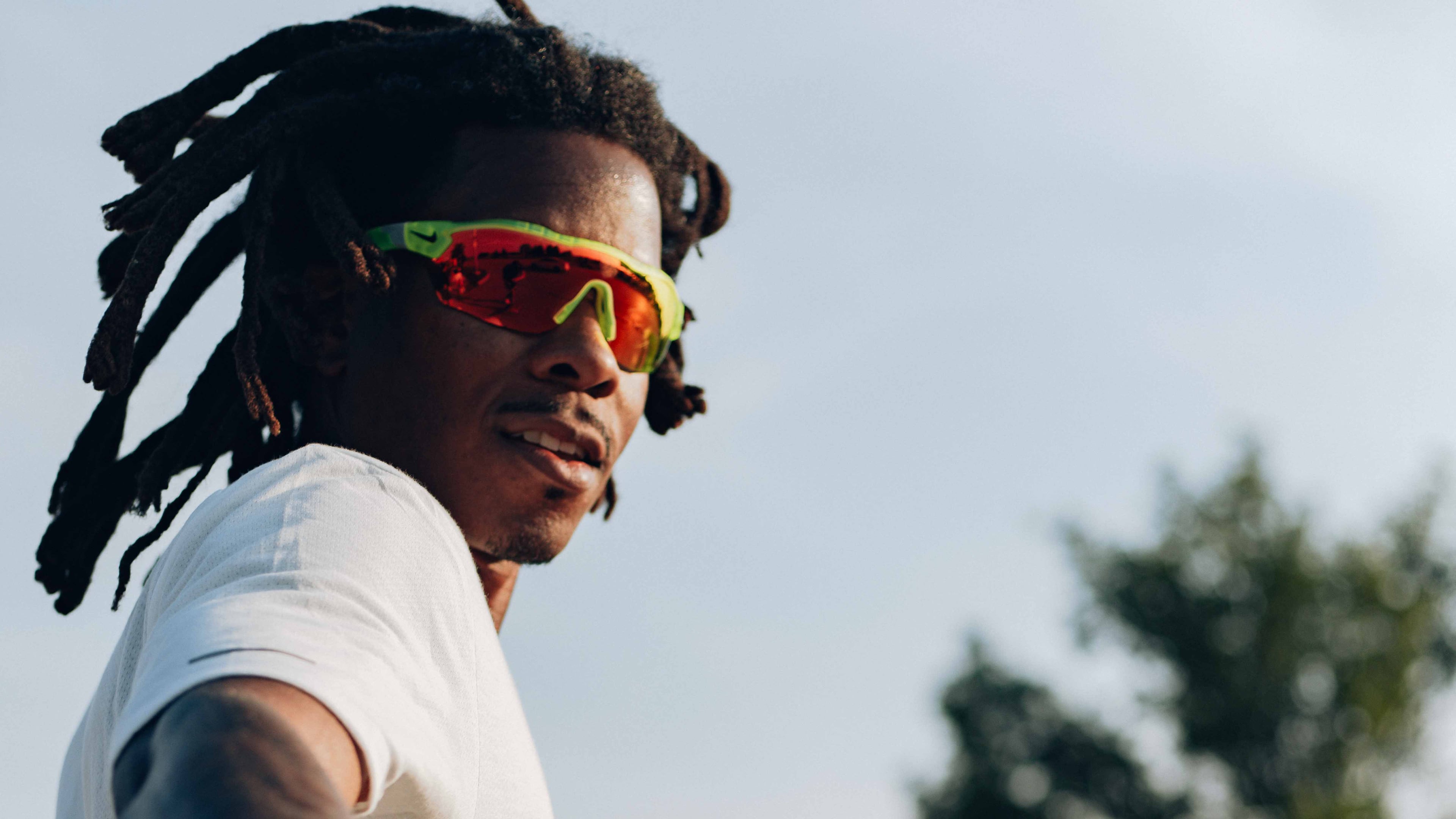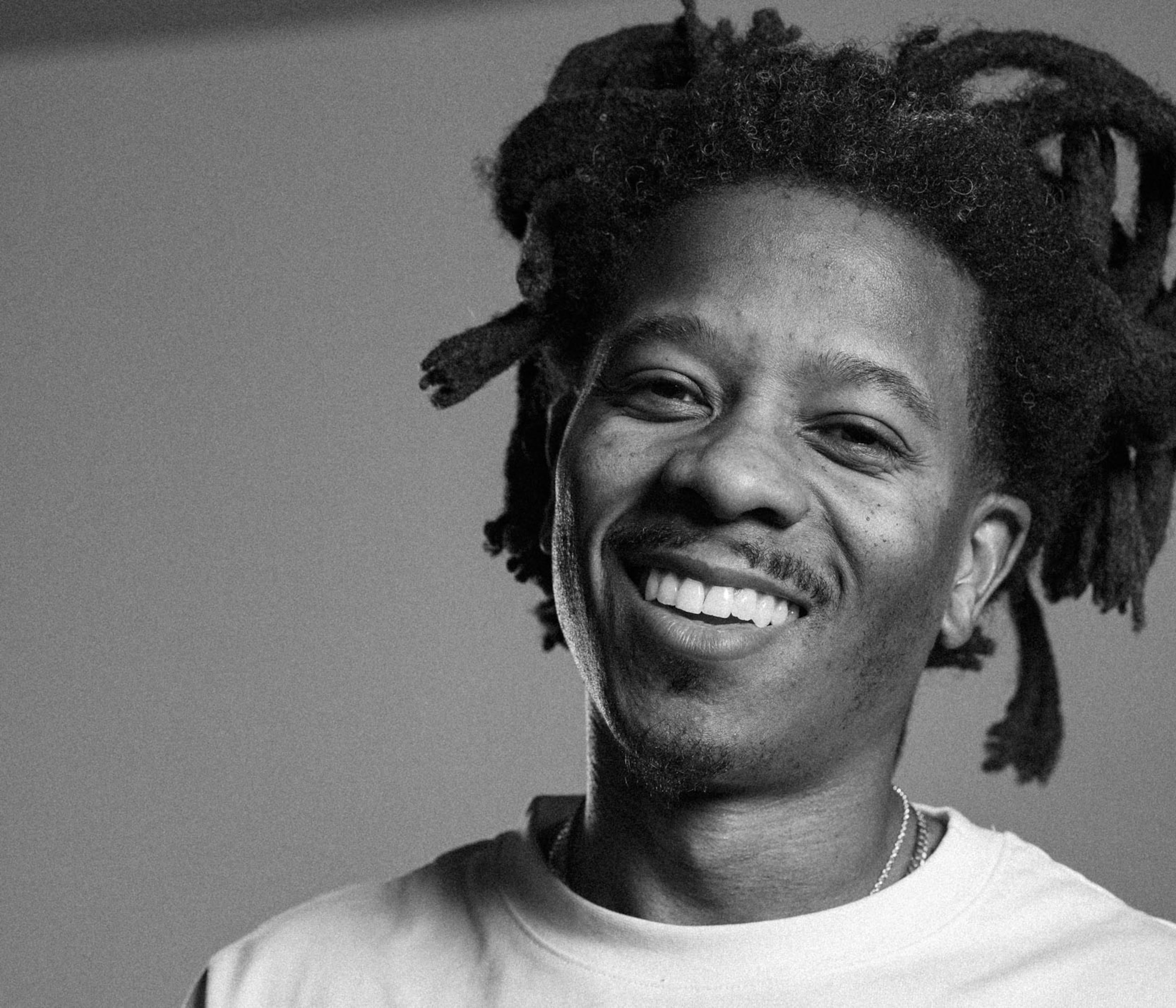AJC Peachtree Road Race: Tommie Runz isn’t a fan of the humidity, but he’s back for the vibes

As a native of Detroit, world-renowned running influencer Thomas “Tommie Runz” Bailey, 40, didn’t know much about Atlanta’s biggest race event, the annual Atlanta Journal-Constitution Peachtree Road Race before he ran it for the first time in 2024.
The 10K race that happens every Fourth of July was coming in the middle of his quest to achieve the coveted “six stars” distinction of finishing each of the Abbott World Marathon Majors in Tokyo, Boston, London, Berlin, Chicago and New York City in one calendar year.
“I knew it looked like a fun race and a big deal for Atlanta, that’s it,” admits Runz, who was only vaguely familiar with the race from what he’d seen on social media over the years. “I did not know that it was the largest 10K (race) in the world and that it would feel like a mini major marathon. I didn’t expect that type of energy.”
This year marks the 56th running of the race that starts at Lenox Mall and ends near Piedmont Park. While fanfare and attendance for Peachtree and its accompanying expo had always been robust, the race has grown even more in the last three years alongside the increased interest in running since 2021.
For frame of reference, America’s largest major marathon, the New York City Marathon (26.2 miles), consistently hosts at least 55,000 runners each year. Last year, Peachtree (6.2 miles) had more than 50,000 participants and runners from 30 countries with all 50 states represented, making Atlanta Track Club’s claims of it being the world’s largest 10K ring truer than ever.

“It truly felt like a major marathon experience, from the expo to the corrals to the crowds being hyped all the way through,” says Runz who spent the rest of his time in Atlanta speaking on different running panels hosted around the city. “Most 10Ks, you just stop by a little table in a shoe store and pick up your bib. All of this happening for a 10K is really cool, because it makes it easy for people to experience what we’ve experienced that have run major marathons. It gives them that same feeling.”
A feeling that Runz hopes to bring to the race himself, and running in general, is one of belonging. Since 2021 Runz has been building platforms that, according to his website, aim to “increase Black visibility in a predominantly White running space”and “create and uncover pathways for BIPOC folks (Black, Indigenous and People of Color) through community initiatives and collaborations with brands to promote equal representation.“
In addition to posting daily run-focused content on his Instagram page, he hosts two podcasts, “The PR Project” and “The Tommie Runz Show,” and has worked with numerous running, nutrition and hospitality brands to expose more African Americans to not only healthier lifestyles but business opportunities in the running space. Through these platforms he also shares parts of his sobriety journey that he’s been on since 2017 and how running has positively impacted his mental health.

“We need to increase Black representation and visibility in this space along with any space that is inherently positive for one’s life,” says Runz who recently launched a Paetreon community where he is consulting other African American content-creating runners on how to position themselves to build larger audiences and work with brands.
Up until this past February he spent 17 years working with the same vehicle shipping company before leaving his post as vice president to focus on building his running influencer career.
“Black folks are traditionally not into a lot of different parts of life that others have kind of been privy to, that’s actually good for you and could help us as a community evolve and change and grow,” says Runz who also uses his platforms to promote his vegan lifestyle. “By having more representation in certain areas it breaks down that barrier of thinking ‘that’s some white people stuff.’”
If an eyeball test on the Atlanta Beltline’s Eastside Trail isn’t enough evidence that running is having a moment, running shoe retailer Fleet Feet estimated that “20 million more new” runners emerged between 2020 and 2022, stemming from more people wanting to get active and outside in the midst of COVID restrictions.
However, when it comes to African Americans, an oft-referred survey by Running USA states that Black people only account for 7% of the running population. Reasons ranging from safety to racial profiling to terrain has impacted these numbers. However, with Atlanta having a large Black population, the AJC Peachtree Road Race doesn’t resemble many of the other races held around the country.
“When you run in other cities, you don’t see that many Black people that are involved and engaged,” says Atlanta Track Club coach and host Ronnel Blackmon.
Blackmon met Runz at an Adidas running event during the Boston Marathon last year and set it in motion for Atlanta Track Club to invite him to run Peachtree as a special guest ambassador in 2024. “I think more and more awareness is happening because of people like Tommy Runz and myself that are making it a new experience of destination travel,” says Blackmon. “Especially with the reach that we have here in Atlanta to be able to showcase a running community of Black people.”

“That’s one of the things I loved about being in Peachtree last year, the Black community is heavy in that race,” says Runz. “It feels like a melting pot of like, of what we think it could be a what a major marathon could look like when it comes to the different faces that you see at this race.”
One thing Runz did not love was the sweltering heat that Peachtree is known for. With the race happening in the middle of Atlanta’s hellish summers, finishing the race is a feat in itself. The remainder of the 2024 race was canceled just after 10 a.m. due to “black flag” weather conditions as temperatures hit 91 degrees Fahrenheit.
“It felt like somebody cranked up the thermostat as soon as I landed, and threw a bucket of water in the air,” says Runz about the weather. “It was the most humid, hilliest, hottest race that I’ve ever ran, but I’m excited to do it again.”
Become a member of UATL for more stories like this in our free newsletter and other membership benefits.
Follow UATL on Facebook, on X, TikTok and Instagram.